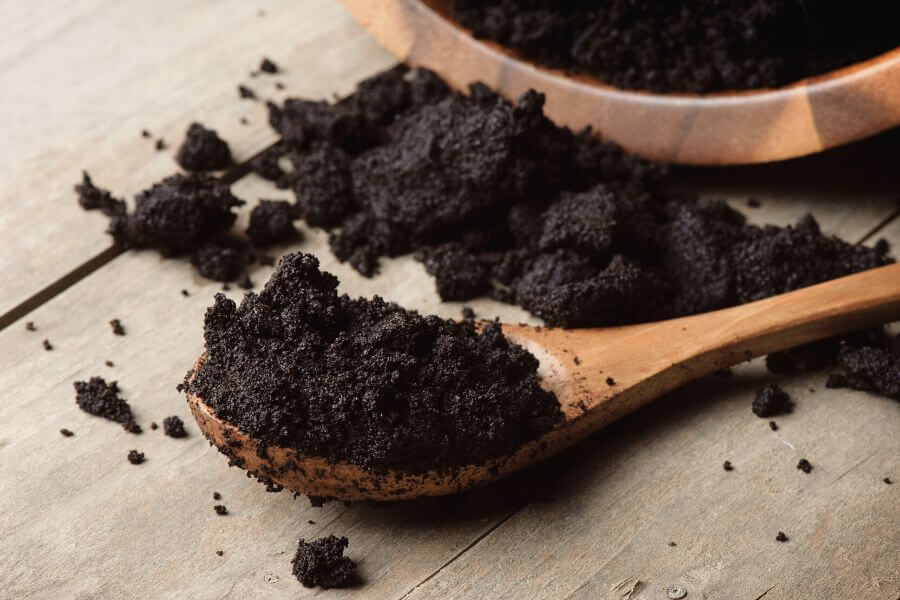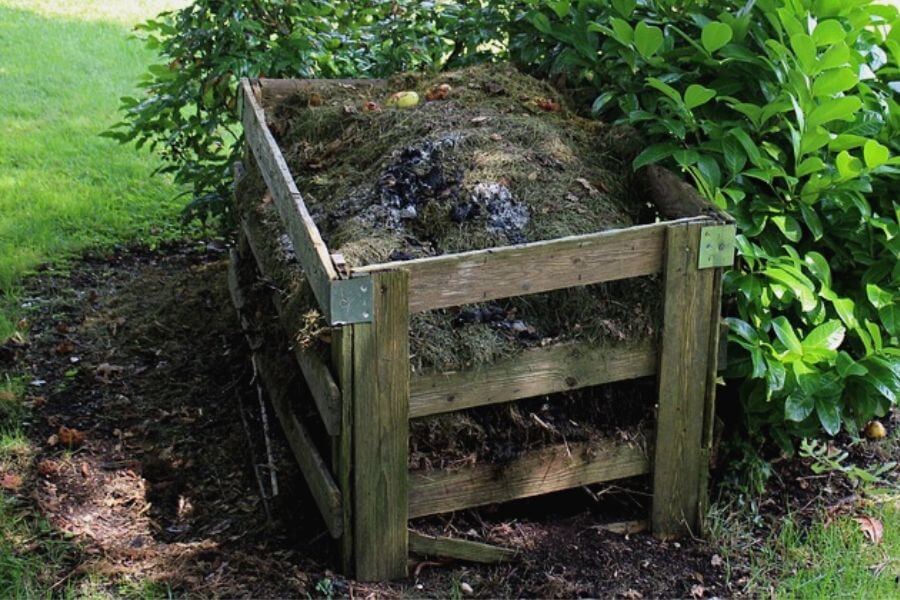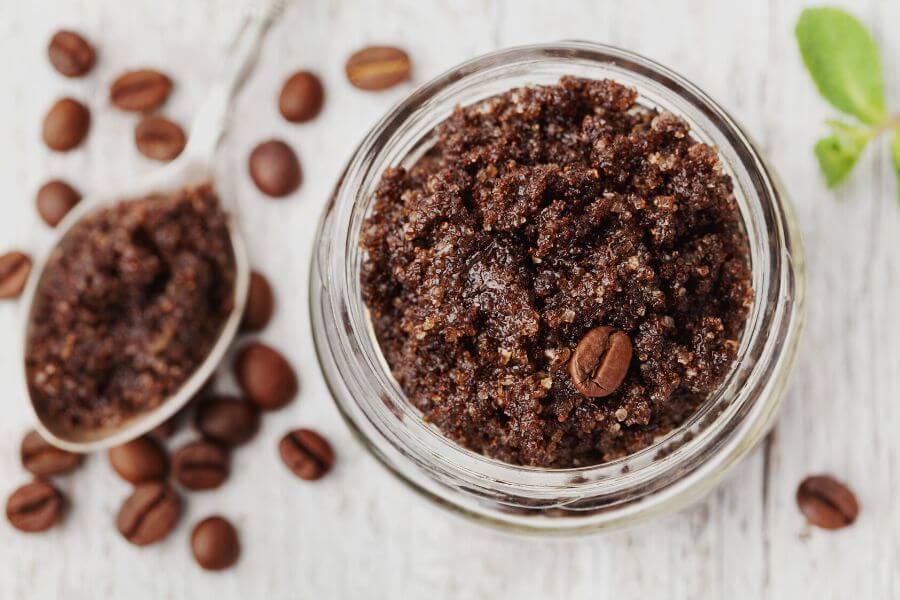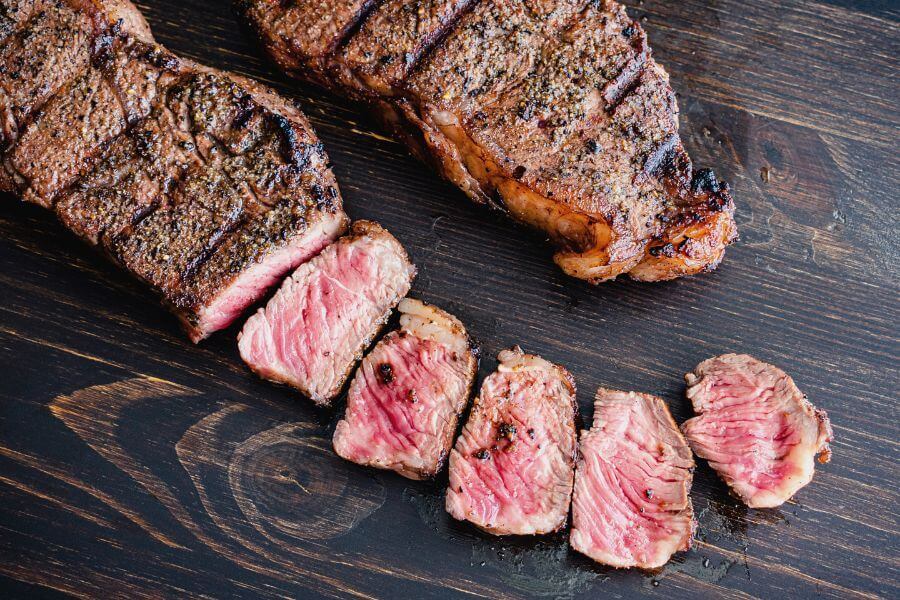10 Uses for Used Coffee Grounds
The benefits of coffee don’t have to stop after you drink that last sip of java. If you’re a fan of reusing or recycling, there are many uses for coffee grounds, even if those grounds have already been used for brewing.
Coffee grounds have all sorts of practical uses beyond brewing java — from a refreshing facial scrub to a way of keeping pests away from your garden. So rather than tossing those leftovers in the nearest garbage can, consider other ideas to get the most from your brew.
We’ve put together our favorite ways to reuse coffee grounds. You’ll be surprised at what you can do with leftover dregs! As we look into those, we’ll cover these topics:
Coffee Grounds — Why You Shouldn’t Toss Them
If you’re like most people, you probably throw away the used coffee grounds after brewing your cup of joe. After all, you’ve got what you need from them, right? However, if you must dispose of the grounds, make sure you’re using a trash can.
Some people ditch coffee grounds down the drain or garbage disposal, and that’s a really bad idea. Ground coffee clumps together when wet, so this can clog up your drain or your garbage disposal. No one wants to call a plumber just for enjoying a cup of java.
For the environmentally conscious, throwing away coffee dregs is wasteful. Many people prefer to reuse or recycle whatever they can, so before you throw those grounds in a trash can, consider ways that you can repurpose coffee grounds.

Clever Coffee Grounds Uses
Rather than throwing them away and taking up space in a landfill, try one of these ideas to repurpose used coffee grounds. What are coffee grounds good for?
1. Coffee Grounds as Fertilizer
Used coffee grounds can make some really good fertilizer for your garden. Coffee contains nutrients that are vital for soil health, including nitrogen, calcium, iron, and phosphorus. Coffee may also help remove heavy metals and toxins from the surrounding soil.
The grounds can also be used to help flowers bloom, particularly azaleas and hydrangeas. If you want to know more, check out our guide on How to Use Coffee Grounds as Fertilizer for your garden or yard.
2. Keep Pests and Animals Away
Got a problem with bugs or animals bothering plants in your garden? Coffee grounds may be the solution. Caffeine is toxic to many insects, pests, and animals, so they will naturally avoid grounds that are caffeinated. Does coffee repel ants? Possibly. And, coffee grounds for mosquitoes may also work.
Used coffee grounds can also function as a physical barrier. Snails or slugs may not decide it’s worth the effort of crossing over those coffee dregs to reach your plants.
3. Coffee Grounds for Compost
Composting is the process of allowing organic materials, such as leaves and leftover food, to decompose naturally. It’s usually carried out in one section of a yard, which allows worms, bacteria, and fungi to speed up the process. What’s left is rich fertilizer that you can use to grow flowers, plants, or fruits and vegetables.
It seems like a no-brainer to compost coffee grounds. Research indicates that combining coffee with compost can improve the nutrients that develop, while reducing greenhouse gas emissions. Composting also helps conserve water, reduces erosion of soil, and of course, reduces waste in landfills.

4. Coffee Grounds to Remove Odors
Using coffee grounds to repel odor is another great idea. As previously mentioned, coffee, particularly the caffeinated version, contains nitrogen. Nitrogen works with carbon to remove sulfur from the air. That sulfur is often the culprit with stinky smells. As it’s extracted from the air, the stench dissipates.
You can use coffee grounds to get rid of odors in your refrigerator, smelly gym shoes, and even your car!
5. Scrub Pots and Pans
You can use a coffee grounds scrub to clean your pots and pans or even remove stains from them. Coffee dregs are gritty and abrasive, which you know if you’ve accidentally ingested a few! Their texture makes them ideal for shifting stuck food or minor stains.
However, you shouldn’t use coffee grounds for cleaning porous materials, as coffee may stain them. When you scour pots and pans, it’s also important to rinse them well after scrubbing them with java.
6. Coffee Grounds for Skin
For the same reason that homemade coffee scrub can be used to scrub pots and pans, you can also use it for exfoliation. Coarse grounds can remove dirt along with dead skin cells, helping refresh your skin. Also, the antioxidants found in coffee may help protect your skin. And, it’s super easy to make!

Coffee Scrub Recipe
What you’ll need:
- 2 tablespoons of coffee grounds
- 1 tablespoon of granulated sugar
- 1 teaspoon of coconut or olive oil
Directions:
- Mix ingredients in a bowl
- Use this DIY coffee scrub on your face or body
- Rinse your skin well with warm water
- Store what’s left in a glass jar with a lid, and you can safely use it for 2-3 weeks
7. Reduce Cellulite
If you don’t know what cellulite is, consider yourself lucky. For the rest of us, cellulite refers to collections of fat under the skin that gives a lumpy appearance. Most people have it, and most people hate it.
However, research reveals that caffeine in coffee may reduce the appearance of cellulite.
- Mix your coffee grounds with enough water or coconut oil to make a paste
- Apply to any affected areas
- Leave on for 15-20 minutes
- Rinse off
8. Natural Dye
Most of us know from personal experience that java can stain. Hence, it comes as no surprise to learn that coffee can be used to dye fabrics or paper. Whether you want to give a new look to your shirt or take part in arts and crafts, leftover coffee grounds can help.
If you have brown hair, coffee grounds can even be used as a temporary dye to darken your locks. You can avoid all the chemicals that come with commercial hair dye products.
9. Repair Scratched Furniture
Another use for coffee grounds — furniture scratches! Leftover grounds can be used as a quick fix for scratched furniture, assuming that your furniture is close in color to coffee.
- Make a paste with coffee grounds and water
- Use a cotton swab to rub the paste into the scratch
- Let it sit for a few minutes, then wipe off with a cloth
- You can reapply it every couple of hours until you reach your desired color
10. Meat Tenderizer
Coffee can even help tenderize meat. Java contains the acids and enzymes necessary for breaking down the tougher parts of meat, particularly steaks.
The flavor of coffee meshes very well with steak, so it’s actually pretty common to see the two together. You can use coffee grounds as a dry rub before cooking, or you can even rebrew some used coffee grounds to create a marinade for the meat.

Wrapping Up
Obviously, drinking java is the best benefit of brewing coffee grounds. However, the leftovers have a surprising number of useful applications outside of a brewing machine.
Are you wondering what to do with coffee grounds? You can use them to make a facial or body scrub, fertilize your flowers, even create a steak dinner. Reusing and recycling is one way to reduce waste that ends up in landfills, and coffee grounds are a perfect example of how to do that.
So, the next time you brew that cup of joe, save those grounds. Rather than throwing them away, try these suggested uses for coffee grounds instead!
Uses for Coffee Grounds FAQs
Can You Reuse Coffee Grounds?
Absolutely! Coffee grounds are one of the easiest examples of how to reuse items rather than throwing them away. Coffee grounds are ideal for everything — from scrubbing your pots and pans to fertilizing your garden.
Which Plants Can I Put Coffee Grounds On?
Azaleas and Hydrangeas flourish with coffee grounds. Blueberries and carrots also receive a boost from coffee dregs mixed into the soil.
Are Coffee Grounds Good for Your Skin?
Yes, coffee grounds can help your skin. The caffeine in coffee may help reduce cellulite, and caffeine is often an ingredient in high-priced skin creams. You can also use grounds to make facial and body scrubs.
How Long Does It Take for Coffee Grounds to Compost?
According to Oregon State University, it takes about 3-6 months for coffee grounds to fully compost. They compost best when combined with leaves or grass in equal amounts.
Why Do Coffee Grounds Absorb Odors?
Coffee contains nitrogen, which can partner with carbon to remove sulfur-based smells from an area. Coffee grounds can be used to absorb odors in sneakers, cars, even refrigerators.
What Bugs Do Coffee Grounds Repel?
Used coffee grounds as insect repellent may deter all sorts of insects, including mosquitoes, bees, ants, and even wasps. Snails and slugs are also put off by coffee grounds.
Can Coffee Grounds Be Used in Crafts?
Yes, coffee grounds are a great way to get the scent or color of coffee into your DIY projects. For example, homemade coffee candles and homemade coffee soap both smell wonderful!





